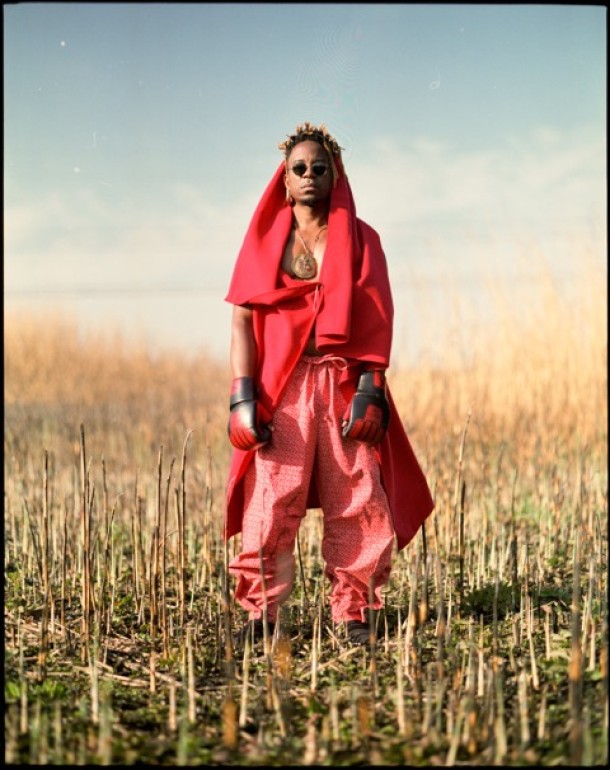Blick Bassy formed his first band in Cameroon at the age of 17. They were called The Jazz Crew and would later develop into Macase, an inventive jazz fusion group inspired by local rhythms with three singers, all singing a different Cameroonian language. It was here that Blick began to revinvigorate bassa as a language that could be used in modern music, a language that he felt the younger generations should appreciate.
After 10 years of performing with Macase – in which the group toured around Africa and played a number of festivals in Europe – Blick grew frustrated with the lack of infrastructure for an artist in Cameroon and decided to move to Paris. It was there, in 2005, that Blick started his solo career, at first collaborating with a wide range of artists, before eventually releasing his debut album Léman (a record that fused West African and Central African rhythms) in 2009, and following it up with Hongo Calling (which was recorded in Brazil following Blick’s research into the musical link – mainly through slavery – between Cameroon and Brazil) in 2011. After the release of this album he moved to Cantin, a small village in the North of France, which is where you’ll find Skip James’ photo hanging on his wall.
Blick Bassy’s third album Akö was released in May, 2015 on No Format, and the tour had included almost 200 gigs between 2015 and 2017, with appearances in some of the most prestigious venues and festivals around the world such as Womex, The Great Escape, Lincoln Center, etc.
Imagine an African artist with the tenderly subversive touch of Bon Iver, the haunting falsetto of Skip James, the razor-like mind of Akala, and the inventiveness of later period Radiohead. You’ve just imagined Blick Bassy. In the slipstream of his acclaimed album Akö, Blick Bassy delivers 1958, a defiant tribute to the heroes who fought and died for the independence of his native Cameroun. Its focus is specific, but its themes – the bondage of neo-colonialism, the need for heroes, the relevance of history and the search for true identity – are universal. An album to thaw the heart and sharpen the mind.
US TOUR DATES – FRANCE ROCKS SUMMER FEST 2019:
6/30 @ Capital One City Parks Foundation SummerStage (Nø Førmat! Festival)
ALBUM 1958
Out on March 8th, and in June 21st in the US & Canada, 1958 is dedicated to the memory of Ruben Um Nyobé, the anti-colonialist leader of the Popular Union of Cameroon (UPC), who was shot dead by French troops on 13 th September 1958, two years before the country became independent.
A tender and soulful selection of songs, the album is sung in Bassa, Blick’s ancestral language. Its focus is specific, but its themes – the bondage of neo- colonialism, the need for heroes, the relevance of history and the search for true identity – are universal.
“Woñi”
New video out on March 8th 2019, he “Woñi” video – directed by Soweto-based talent Justice Mukheli – explores the friction between the distractions of modern society which pull on younger South African generations, and the increasing disconnect with their own political and cultural history.
Justice Mukheli, about the “Woñi” video: “I was given the option to choose between two songs to direct and when I first heard Woñi, I connected with the song immediately because of the emotion it carried. The contrast that made up the musical composition was sensational and inviting. It was a lively song that instinctively had you moving to the beat and yet it held a strange melancholia. At the time I was not even aware of what the song translated to, but it managed to inspire an idea and an aesthetic for the music video. When I finally read the translation, I was blown away: “My country is dying because it is drunk with fear. My country is dying, it continuously drinks alcohol”. I took this as my opportunity to fight the cause and to redefine a subject that strikes fear in the hearts of many.”

